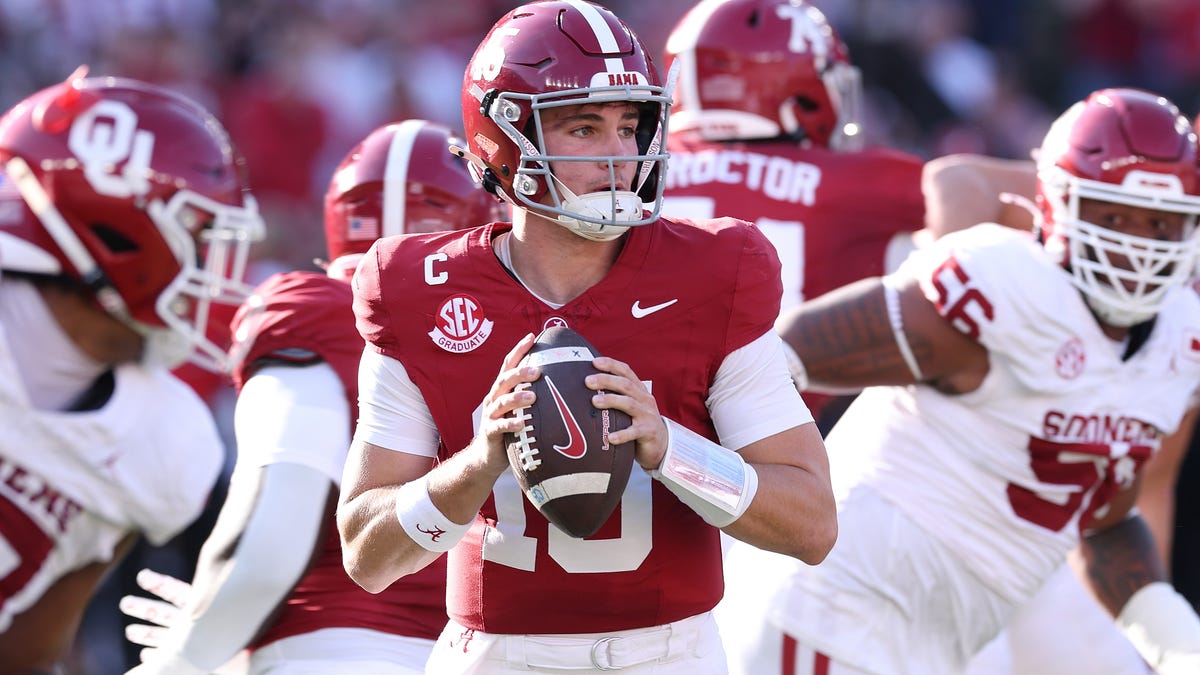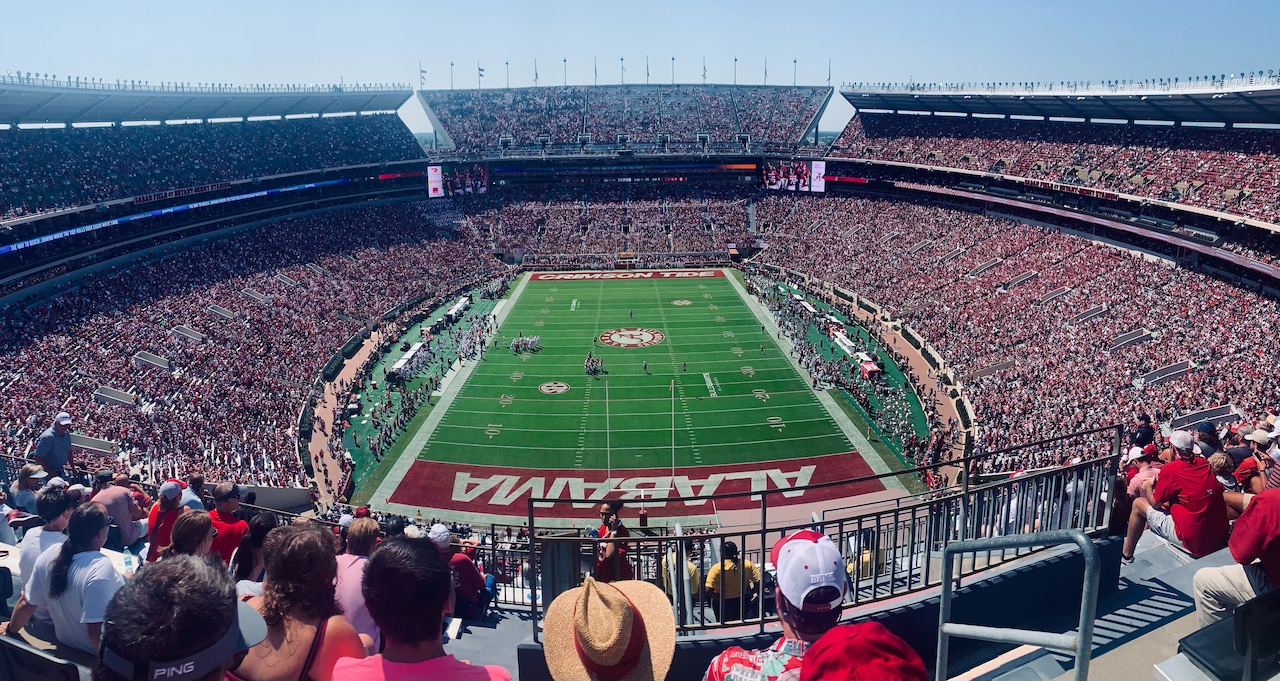The Grand Illusion: When "Competition" Becomes Contractual Obligation
And so, another chapter unfolds in the ever-expanding saga of college football’s naked commercialism, where the sacred tenets of sport often take a backseat to the relentless hum of the cash register. Because when you peel back the layers of pomp and circumstance surrounding a supposed "football game" like Alabama versus Eastern Illinois, what you’re really left with is the skeletal structure of a purely transactional encounter, a contractual obligation dressed up in shoulder pads and helmets. But let’s not kid ourselves; this isn’t about fostering competition, nor is it genuinely about giving fans a thrilling Saturday afternoon. It’s a carefully orchestrated charade, a necessary evil in the Byzantine world of collegiate athletics schedules, and the sheer audacity of how it’s presented, or rather, *hidden*, truly takes the biscuit.
And because the titles screamed about multiple Alabama starters being out, it’s not hard to connect the dots, is it? It’s not some grand tactical masterstroke; it’s a strategic decision rooted in practicality and, let’s be honest, self-preservation. When you pit an athletic titan like the Alabama Crimson Tide against, well, Eastern Illinois, you’re not exactly expecting a nail-biter, are you? The competitive balance is so ludicrously skewed that the primary concern for the powerhouse isn’t winning – that’s a foregone conclusion – but rather avoiding injuries to key players who actually matter for *real* games down the line. It’s a calculated risk, managing assets, and it utterly drains any pretense of genuine athletic contest from the whole affair. The logical deconstruction reveals a spectacle devoid of suspense, a mere exhibition where one team is explicitly there to fulfill a slot and collect a check.
But here’s the kicker, the true slap in the face to anyone who still believes in the traditional viewing experience: this monumental clash of titans, this crucial Week 13 matchup (as if!), is relegated to the digital ether, exclusively available on SEC Network+. And what exactly is SEC Network+? It’s not your grandma’s cable channel. It’s not even your basic SEC Network. It’s an over-the-top streaming service, an additional hoop you’re expected to jump through, a digital gatekeeper demanding allegiance and, more importantly, a subscription. Because in this brave new world, access isn’t a right; it’s a privilege, meticulously managed and monetized down to the last possible penny. This isn’t just a broadcast decision; it’s a philosophical statement about the direction of sports media, pushing fans further into controlled ecosystems whether they like it or not, and damn the torpedoes if you’re not tech-savvy or have lousy rural internet. It’s a deliberate pivot, a clear signal that the old ways are dying, replaced by fragmented, pay-to-play viewing models that are great for content owners but a pain in the neck for the average Joe who just wants to watch some football without a doctoral degree in streaming architecture. What a joke.
The Digital Divide: Who Gets to Watch, And Why It Matters
Because let’s get straight to the point: the decision to broadcast the Alabama-Eastern Illinois game exclusively on SEC Network+ isn’t a benign technicality; it’s a deliberate act of digital gatekeeping, designed to herd audiences into specific platforms and, you guessed it, generate more revenue. And while the purveyors of such services will undoubtedly wax poetic about the "convenience" and "flexibility" of streaming, the cold, hard truth is that it introduces significant barriers to entry for a substantial segment of the fanbase. But who are these forgotten fans? Well, for starters, there’s the older demographic, perhaps less comfortable navigating myriad apps, passwords, and device compatibility issues. Then there are those in less-connected regions, where reliable, high-speed internet isn’t a given, making seamless streaming a frustrating, buffering nightmare, if even possible. These folks, lifelong supporters who might have faithfully tuned into network television for decades, are now effectively told, "Sorry, chief, you’re not part of our preferred demographic anymore." It’s a stark, almost brutal, illustration of the digital divide at play within the world of sports, alienating a loyal but perhaps less technologically fluent segment of the audience.
And because this isn’t just about one game, is it? It’s a harbinger of things to come, a test balloon for a future where more and more "secondary" content – and perhaps eventually all content – will migrate to these exclusive, subscription-based streaming platforms. The writing’s on the wall, plain as day, for anyone with eyes to see it. This isn’t just about Week 13 of the 2025 college football season; it’s about conditioning fans to accept a new normal, a fragmented viewing experience where you need not just one cable subscription, but a dozen different streaming apps, each demanding its own piece of your wallet, each with its own quirks. It’s death by a thousand cuts, financially and logistically. But where does it end? Will the communal experience of watching a game with friends and family, gathered around a single television, become an antiquated relic? The industry seems hell-bent on breaking down the traditional viewership model, not for the benefit of the fan, but for the benefit of the bottom line, consolidating power and profit with ever-narrower distribution channels.
And so, while the talking heads might frame this as progress, as adapting to the modern consumer, the reality is far grittier. Because "SEC Network+" isn’t merely an extension; it’s an economic filter, sifting out those unwilling or unable to pay the additional toll. This move effectively diminishes the accessibility of what should be a public good – the spectacle of college football – transforming it into a tiered privilege. It’s like demanding a special VIP pass to watch a public park fountain. But the implications stretch beyond mere inconvenience; they touch upon the very essence of what makes college sports so universally beloved. When you start making it harder for people to watch, when you force them through technological hoops and financial hurdles, you risk alienating the grassroots, the very foundation of the fan base. Because at some point, the juice just isn’t worth the squeeze, and fans will simply tune out, finding other, more accessible forms of entertainment. This isn’t expanding the audience; it’s refining it, creating a more exclusive, and ultimately, less diverse group of viewers who fit the mold of the "ideal" digital consumer. It’s a cynical play, a move that sacrifices broad appeal for targeted, higher-yield engagement, and it leaves a bitter taste in the mouth of anyone who cherishes the democratic spirit of sports.
The Commodification of Competition: A Rationale for the Absurd
And let’s be utterly frank about the "competition" aspect here, if we can even call it that, because the multiple Alabama football starters being out against Eastern Illinois isn’t a surprise, it’s a symptom of a deeper malaise in college football, a frank admission that some games are simply not meant to be taken seriously from a competitive standpoint. But why do these matchups, these outright mismatches, even happen? It’s simple, really: money, tradition, and the self-serving narrative of providing "tune-up" games. Yet, the logical deconstructor must ask, what kind of "tune-up" is truly gained from obliterating an opponent with vastly inferior resources and talent? It’s not about sharpening skills against worthy adversaries; it’s about a guaranteed victory, a statistical padding for quarterback Ty Simpson and the team, and a hefty paycheck for the visiting sacrificial lamb, Eastern Illinois, who are essentially paid to show up and get clobbered. They’re a glorified sparring partner, accepting the indignity for the much-needed revenue infusion, a financial transaction that has very little to do with sport and everything to do with economic necessity for the smaller program. It’s a system that perpetuates itself, ensuring the rich get richer while the less fortunate scrape by, often at the cost of their dignity on the field.
Because the cynical reality is that these games are often an elaborate exercise in risk management for the powerhouse programs. With multiple starters sitting out, Alabama is essentially telling the world, "This game means nothing to our championship aspirations; our focus is elsewhere, on avoiding injuries." But think about what that does to the integrity of the game itself, to the very concept of competition. Are we to believe that the players who *do* play are giving their absolute all, or are they merely going through the motions, understanding the unspoken mandate to avoid unnecessary heroics that could lead to injury? And what about the Eastern Illinois players? Are they genuinely playing for an upset, or are they acutely aware of their role as cannon fodder, trying to make a few good plays for their highlight reel before the inevitable drubbing? It’s a disingenuous dynamic, creating a situation where the outcome is predetermined, and the effort, at least from one side, is inherently tempered by strategic calculation. The authenticity of the contest is utterly compromised, turning what should be a battle of wills into a contractual obligation, a spectacle that exists purely to fill a slot on the schedule and generate revenue.
And the implications for the future? They’re pretty stark, if you’re asking me. Because this trend of big teams playing smaller ones, coupled with the increasing trend of starters opting out – not just for bowl games, but for regular season mismatches – paints a bleak picture for the future of competitive balance in college football. We’re hurtling towards a system where the vast majority of regular season games, particularly non-conference ones, will be viewed with a jaundiced eye, understood as little more than highly paid scrimmages or glorified exhibitions designed solely to keep the money machine churning. This isn’t just about Week 13 or Ty Simpson; it’s about the erosion of the sport’s very soul, replaced by a cold, calculating business model that prioritizes profit and player preservation over genuine, unpredictable competition. But where does that leave the casual fan, the one who craves the thrill of the unknown, the possibility of an upset? They’re left watching a predetermined farce, a meticulously managed product rather than a spontaneous contest. And ultimately, that’s not just bad for the game; it’s a betrayal of the spirit of sport itself, turning athletes into commodities and fans into mere consumers in a marketplace of manufactured entertainment. It’s a sad state of affairs, indeed, and unless something fundamentally shifts, the rot will only continue to spread.


